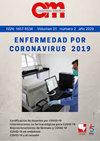Response to comment made by Angulo-Ramos and Merino-Soto entitled “Effect size: comment on the study on the Factors associated with the practice of exclusive breastfeeding
IF 1.3
4区 医学
Q3 MEDICINE, GENERAL & INTERNAL
引用次数: 0
Abstract
This letter focuses on recent and interesting work on breastfeeding, to emphasize two observations. The first observation refers to the fact that, in Mateus and Cabrera’s manuscript It was hardly discussed whether the referred knowledge and skills may be relevant to understanding the mothers’ behavior regarding their commitment to breastfeeding. The relevance of these cognitive aspects requires more attention due to their relationship with breastfeeding practices, and in general with the long-term mother-infant dyad. Because the knowledge and skills to maintain successful breastfeeding have implications for developing instructional content in interventions for mothers as well, great attention needs to be paid to the size of the effect of differences between reported frequencies in pregnancy and the immediate puerperium. In Table 3, these differences were examined by the McNemar statistical test, which allows obtaining the statistical significance of the rejection of the null hypothesis of no differences. But neither this test nor the size of its p-value inform about the degree or size of the differences. An estimate of the size or magnitude of the differences, represented as point values or confidence intervals (as reported in Tables 4 and 5), tend to better specify tests of statistical significance.对anglo - ramos和Merino-Soto发表的题为“效应大小:对纯母乳喂养相关因素研究的评论”的评论的回应
这封信的重点是最近关于母乳喂养的有趣工作,以强调两个观察结果。第一个观察到的事实是,在Mateus和Cabrera的手稿中,几乎没有讨论提到的知识和技能是否可能与理解母亲在母乳喂养承诺方面的行为有关。这些认知方面的相关性需要更多的关注,因为它们与母乳喂养的关系,一般来说,与长期的母婴死亡。由于保持母乳喂养成功的知识和技能也影响到为母亲制定干预措施的教学内容,因此需要高度注意怀孕期间和产褥期报告的频率之间差异的影响程度。在表3中,这些差异通过McNemar统计检验进行检验,该检验允许获得拒绝无差异原假设的统计显著性。但是这个测试及其p值的大小都不能说明差异的程度或大小。用点值或置信区间表示的差异大小或幅度的估计(如表4和表5所述)往往能更好地指定统计显著性检验。
本文章由计算机程序翻译,如有差异,请以英文原文为准。
求助全文
约1分钟内获得全文
求助全文
来源期刊

Colombia Medica
MEDICINE, GENERAL & INTERNAL-
CiteScore
2.00
自引率
0.00%
发文量
11
审稿时长
>12 weeks
期刊介绍:
Colombia Médica is an international peer-reviewed medical journal that will consider any original contribution that advances or illuminates medical science or practice, or that educates to the journal''s’ readers.The journal is owned by a non-profit organization, Universidad del Valle, and serves the scientific community strictly following the International Committee of Medical Journal Editors (ICMJE) and the World Association of Medical Editors (WAME) recommendations of policies on publication ethics policies for medical journals.
Colombia Médica publishes original research articles, viewpoints and reviews in all areas of medical science and clinical practice. However, Colombia Médica gives the highest priority to papers on general and internal medicine, public health and primary health care.
 求助内容:
求助内容: 应助结果提醒方式:
应助结果提醒方式:


